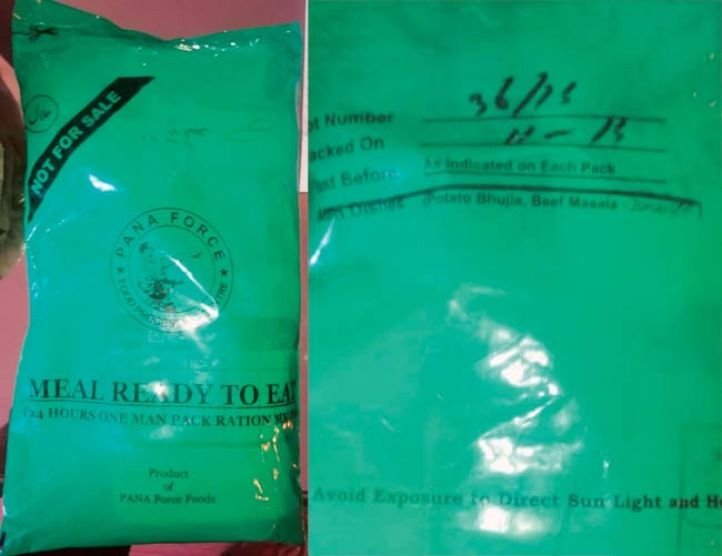(Any opinions expressed here are those of the author and not necessarily of ScoopWhoop)
Before the April 25 Nepal earthquake, not many knew about the surrogate Nepalese and other Asian mothers renting their wombs to the homosexual couples and single parents of Israel. However, the news isn’t this.
Three days after the 7.9 magnitude earthquake hit Nepal and killed more than 6600 people and left thousands injured, with many still missing under the rubble, an Israeli Boeing-747 flying from Nepal hit the tarmac of Ben Gurion International Airport carrying among 229 passengers, 15 Israeli babies born to surrogate mothers in Nepal. All the babies were born within the past six weeks.
Where are the women who carried the babies in their wombs for nine months, even if for money? One ought to ask.
They are probably in Nepal and there’s no news of them.
Tragedies and disasters, undoubtedly but not necessarily, as in this case, evoke emotions and empathy from people irrespective of their religion, caste, creed, gender and economic status, often diluting borders and razor wires. What one makes out of Israel’s act of flying, its newly born, though originally and scientifically half-Israeli, reflects a grossly skewed, and frankly speaking, racist response to the human tragedies.

The question is not of flying the surrogate mothers, too, to Israel but of empathy. If tragedies don’t shake a human conscience then what does?
If post-earthquake ravaged Nepal was unsuitable for infants, then how did the hundreds of Nepalese children, cuddled in their mother’s laps under open skies and shivering cold, survive?
What has the Israeli government done to help those surrogate mothers in Nepal who have delivered 15 of its future citizens?
Reportedly, there are a hundred pregnant surrogate mothers in Nepal with Israeli babies in their bellies. Israel surely is concerned about them and this is why it has set up a field hospital to assist local doctors and the evacuation of the newborn children is the top priority of the organization leading the initiative.
However, this statement by Israeli Attorney General Yehuda Weinstein that “he would allow the most heavily pregnant to be flown to Israel to give birth”, is enough to clear the smokescreen. What after they give birth?
Trading Nationalisms
Nepal is news. It’s also a platform to outweigh and stalemate your opponents at geo-political level, as it has appeared since last week. One of the worst tragedies of the post-Nepal earthquake has been the way helplessness, poverty and supposed inability of Nepal as a country to deal with natural calamities, was used by its powerful neighbours in scoring points over the other.
As if India has a full proof mechanism to deal with disasters!
Take the case of India and China’s relief efforts in the region. While TV studios in Delhi and Mumbai kept flashing mug shots of earthquake victims being helped over by Indian military personnel, headlines of India outfoxing China in relief efforts because of common Hindi language.
There are certain questions which spring from simple logic: If relief and rescue effort, supported by dozens of countries sending their men and equipment, and touted with hyper-media limelight, then why did protests against slow relief and lack of coordination break out on the streets of Kathmandu? Many reports from Nepal suggested that victims, battling the devastation, clashed with police after the promised buses to ferry them to their homes on the outskirts and villages, never showed up.
Then, what does one make of Nepalese authorities on Saturday ruling out a possibility of finding more survivors in the debris?
Early this week, Prime Minister Narendra Modi told reporters that Nepal’s Prime Minister Sushil Koirala, who was away on an official visit to Thailand, learnt about the earthquake from his tweet.
Agreed. But what does it signify? Isn’t it easy to read between the lines that Modi is ridiculing Koirala in front of his own people and more importantly world community. Would there have been fewer casualties if Koirala was in Nepal and felt the 7.9 magnitude tremors himself? How does it matter from where you receive information of a disaster like this – one you can do nothing to stop, even if you are Prime Minister.
Does Koirala know that habitually, Modi tweets about everything happening around country but condemning anti-minority speeches and incidents taking place under his government?
Nice time for Koirala to upset Modi! Strangely, that’s politics.
We have all been moved by the tragedy of Nepal and this is perhaps why scores of people are on ground and thousands of netizens on social media are mobilizing support for the victims. We still are far from understanding the intensity of what Nepal is going through.
Do we have to wait for tragedies to express patriotism and allegiance to the nation-state called as India? Does one need to be an Indian, Pakistani, American or British first and then support the victims?
The same nationalistic narrative was flashed during September 2014 floods in Kashmir, where in an attempt to elevate the almost negligible credibility of Indian Army driven by Indian media, backfired once the waters went down.
Pakistan’s Beef Relief
According to reports, Pakistan, allegedly ignorant about the cultural sensitivity of the Hindu dominated Nepal, sent packages of relief containing beef masala . However, Pakistan quickly denied any such intent and criticised Indian media for creating unnecessary controversy.
While the controversy died a quick death, certain aspects of politicking during this tragedy were exposed.

“On each and every packet inside the kit the name of the dish is clearly written in English and Urdu so that people may choose whatever they like to eat or discard. Both the languages are understood in Nepal,” Pakistan’s Foreign Office spokesperson, Tasneem Aslam said.
Clearly, it was a matter of choice. And when people are drinking their own urine to survive under the rubble, eating beef masala to outwit death looks more rational. Did you hear any Nepal earthquake victim protesting against that food?
The cities are lying flattened in heaps of rubble and people across the world are empathizing with Nepalese civilians, attempting to provide succor and aid. The need of the hour is to turn off the cameras, shun PR campaigns and lend your hand to pull out that trapped soul from wreckage.

















